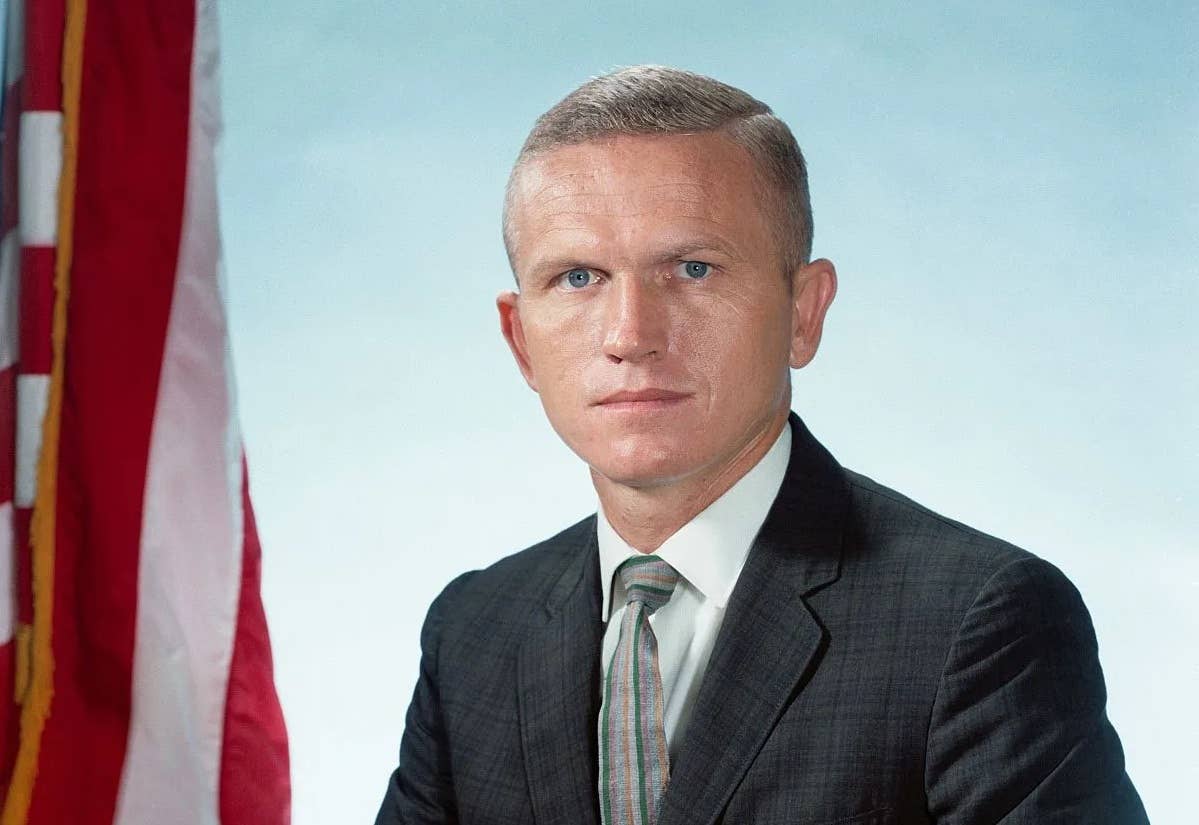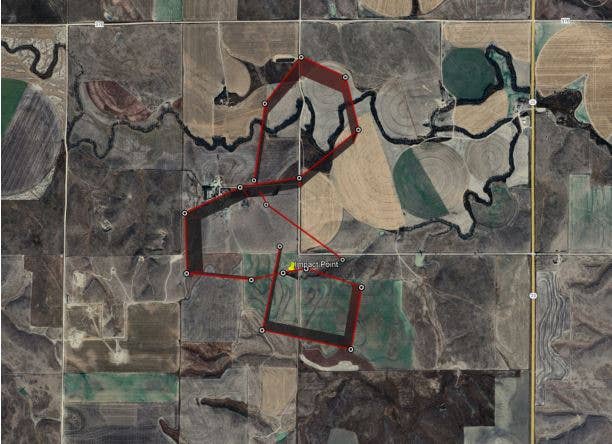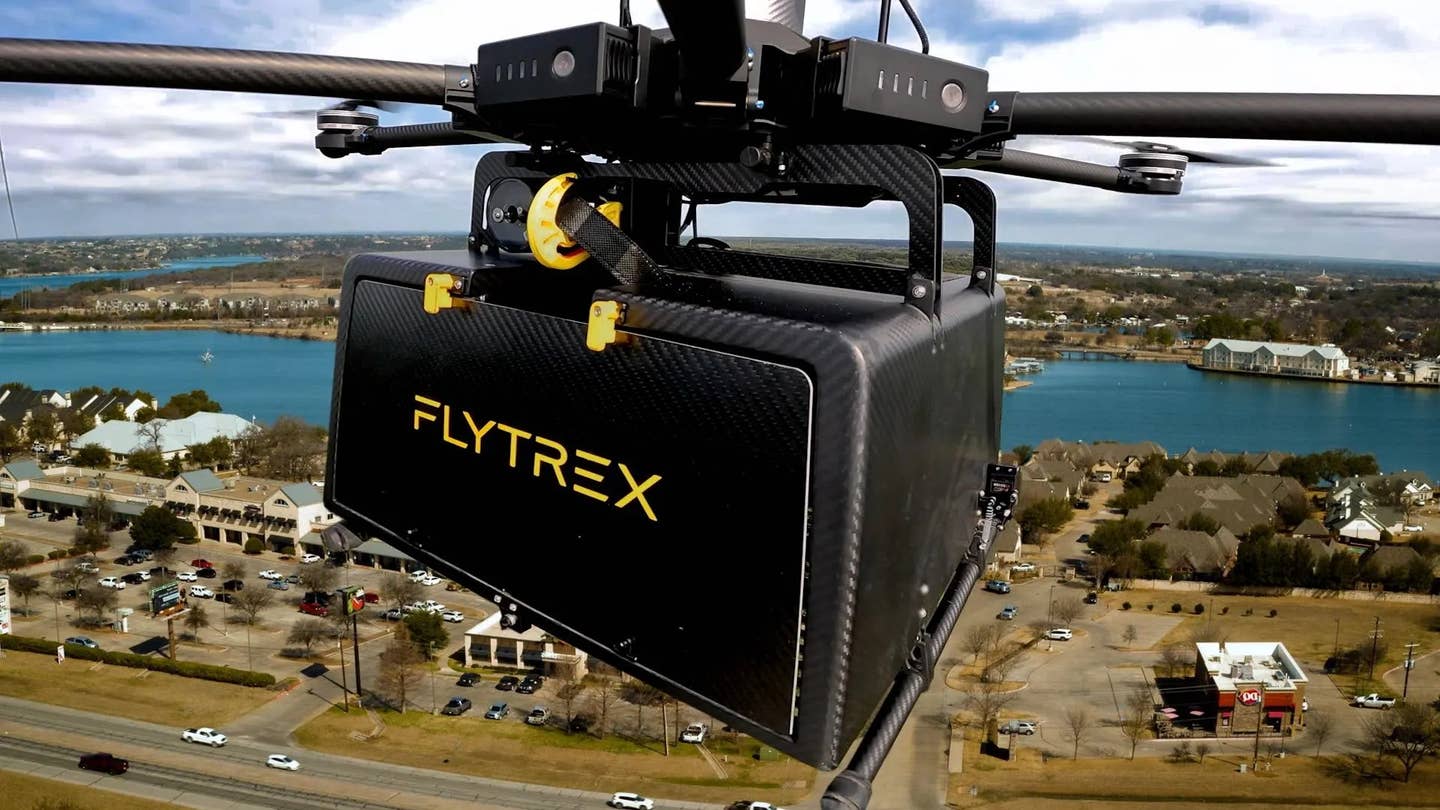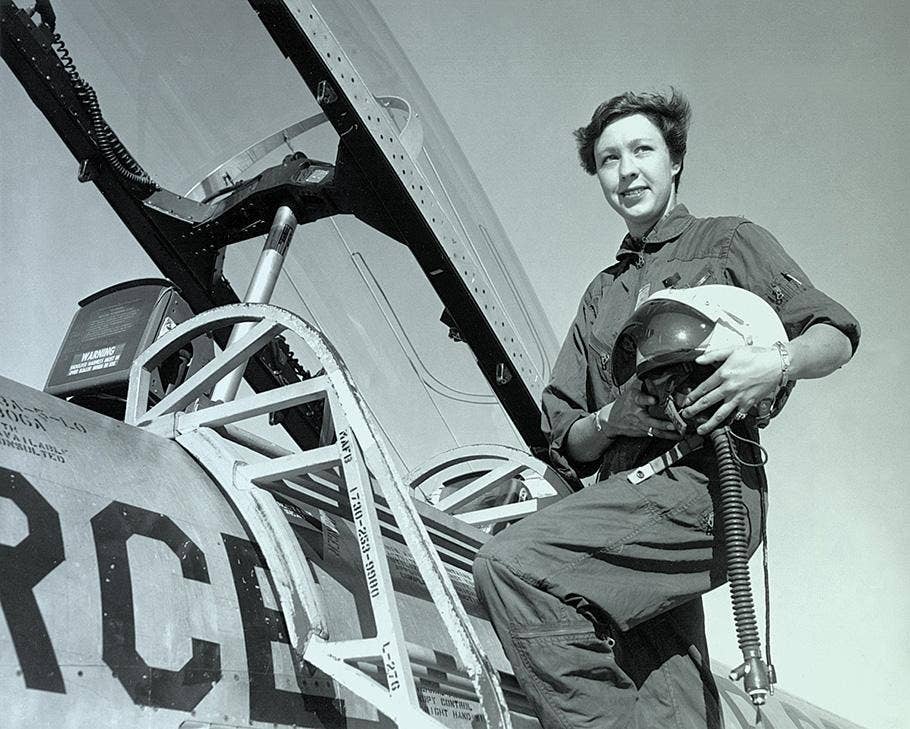Former NASA Astronaut Frank Borman Dead at 95
NASA astronaut Frank Borman is best remembered for commanding the Apollo 8 lunar orbital mission.

Borman was selected for NASA’s second class of astronauts in 1962. [Courtesy: NASA]
NASA is mourning the passing of former NASA astronaut Frank Borman, who died in Billings, Montana, on Tuesday at the age of 95.
Borman, a retired Air Force colonel, enjoyed a long career with NASA and is perhaps best remembered as the commander of the Apollo 8 mission, the first lunar orbital mission in 1968.
Frank Frederick Borman II was born March 14, 1928, in Gary, Indiana, and raised in Tucson, Arizona.
Borman developed an interest in aviation as a teenager. He wanted to attend a college that had an aeronautical engineering program but was concerned about the financial strain it would put on his parents. So he made plans to join the Army and use the GI Bill to finance his education.
When he graduated from high school in 1946, there were many former soldiers taking advantage of the bill. A friend of the family knew a local congressman and suggested that Borman try to obtain an appointment to the U.S. Military Academy. Always one to hedge his bets, Borman took both the Army physical and the entrance exam to West Point. He passed both and opted for the academy, where he earned a Bachelor of Science degree. Upon graduation in 1950, he entered the U.S. Air Force.
Borman enjoyed a diverse military career with several flying assignments. He was a fighter pilot, flight instructor, experimental test pilot, and later assistant professor of thermodynamics and fluid mechanics at West Point. The Space Race had begun, and NASA was looking for men with technical education and advanced college degrees, so Borman returned to school, obtaining a Master of Science degree in aeronautical engineering from the California Institute of Technology in 1957.
He was instructing at the Aerospace Research Pilot School at Edwards Air Force Base, California, when NASA selected him for the second class of astronauts in 1962.
Borman's first trip into space in December 1965 came as a member of the Gemini 7 crew with Jim Lovell. They spent 14 days in space during America's fourth crewed mission.
The mission, which extended over Christmas Eve, included the three astronauts reading from the first 10 verses of the Bible’s Book of Genesis. Borman ended the message with “and from the crew of Apollo 8, we close with good night, good luck, a Merry Christmas, and God bless all of you—all of you on the good Earth."
In 1967 he served as a member of the Apollo 204 Fire Investigation Board, which sought to determine the cause of the blaze aboard the command and service module. The mission never launched as the cabin fire during a rehearsal test on January 27 killed all three astronauts, including command pilot Gus Grissom, senior pilot Ed White, and pilot Roger Chaffee. They were unable to open the door from the inside and escape the flames.
In his testimony before Congress and the investigative committee, Borman stated the command module was safe. He also pressed for the door to be redesigned so that it could be opened from the inside. The redesign was time consuming, expensive, and added weight to the spacecraft, but Borman got his way, and as the Apollo program resident manager led the team that performed the redesign. He also served as field director of NASA's Space Station Task Force.
“Astronaut Frank Borman was a true American hero,” NASA Administrator Bill Nelson said. “His lifelong love for aviation and exploration was only surpassed by his love for his wife, Susan. In addition to his critical role as commander of the Apollo 8 mission, he is a veteran of Gemini 7, spending 14 days in low-Earth orbit and conducting the first rendezvous in space, coming within a few feet of the Gemini 6 spacecraft.”
Borman retired from NASA in 1970 and joined Eastern Airlines as a special adviser, becoming senior vice president of the operations group. In May 1974 he was elected president and chief operating officer. He was named CEO in December 1975 and became chairman of the board in 1976. As the airline industry convulsed following deregulation, Borman instituted a program at Eastern that included profit sharing and wages tied to company profitability. He retired from Eastern Airlines in June 1986.
Borman’s Honors
Borman received the Congressional Space Medal of Honor, the Harmon International Aviation Trophy, the Robert J. Collier Trophy, the Tony Jannus Award, and the National Geographic Society's Hubbard Medal. In 1990 Borman, Lovell, and fellow astronaut William Anders were inducted into the International Aerospace Hall of Fame.
Borman was preceded in death in 2021 by his wife, Susan Bugbee Borman, who he met in high school and married shortly after college graduation. Their two sons, Frederick and Edwin, also survive him, along with four grandchildren and six great-grandchildren.

Subscribe to Our Newsletter
Get the latest FLYING stories delivered directly to your inbox






